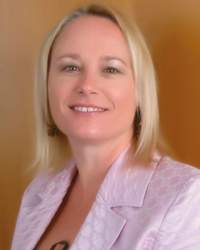The risk management and insurance industry was, and still is, a male-dominated field. This is a fact. But what’s also true is that more and more executive-level positions within the industry are being filled by women. They moved from secretary to the risk manager, to CFOs of major corporations, directors of risk management for Fortune 500 companies and heads of insurance recovery for major law firms.
They’re making moves.
In Risk Management‘s January/February 2011 issue, I highlighted some of the female pioneers within the risk management and insurance industry, letting them share their story of how they squashed sterotypes and landed leading roles in the field. I profiled successful women such as:
- Kathie Maley, Vice President, Risk Management, Special Risk Services, IMA Financial Group
- Stacey Nielsen, Senior Risk Analyst, Dollar Tree Stores
- Tamika Puckett, Risk Manager, Public Schools of Alexandria City, Virginia
- Trish Henry, Executive Vice President and Deputy General Counsel, ACE
- Lori Seidenberg, Vice President of Enterprise Risk Management, Centerline Capital Group
- Dorien Smithson, Executive Vice President of Strategic Outcomes Practices, Willis
And we get a glimpse of the achivements of even more women in Business Insurance‘s annual “Women to Watch.” In it, the publication recognizes women doing outstanding work in insurance, risk and benefits management, and related fields. One of the 25 honorees, Grace Crickette, spoke at last month’s RIMS ERM Conference in San Diego. As the chief risk officer for the University of California, she also serves on the RIMS ERM Committee. In her interview with Business Insurance, she gives some great advice to future (and even current) generations of risk managers:
I had a great boss, who’s since passed away, and one day he said to me, “Grace, your desk is a dangerous place to do your job.” And I said, “Well, Bill, what do you mean by that?” And he said, “You’re not going to make the best decisions on implementing policies and procedures and programs if you don’t get out in the field and really understand the business.” So I think that would be one bit of advice: Don’t spend too much time at your desk. There’s not a lot of risk at your desk; and if you want to be of value to the organization and really progress in the organization, you really need to get out and really understand the business in a holistic way. The other one is also then to learn the language or the taxonomy of the other people you’re working with. I think in risk management, you can tend to become insular and just focus from an educational or professional standpoint on being with other risk managers and studying just risk management.
Great advice for any profession.


